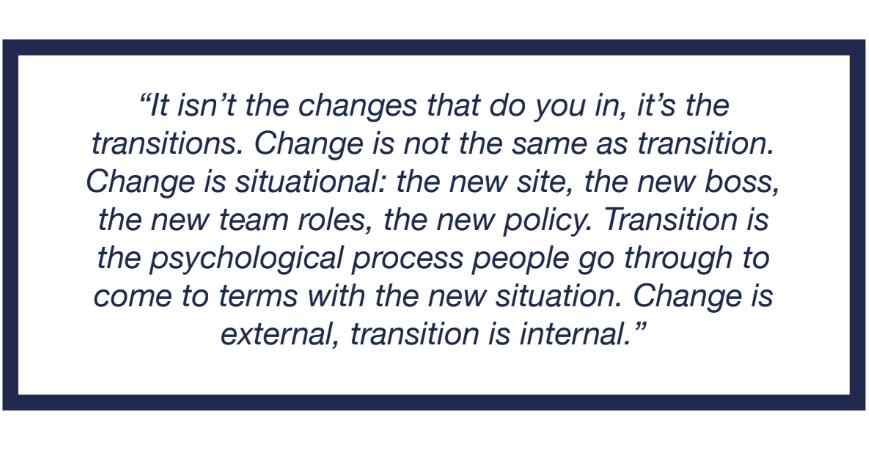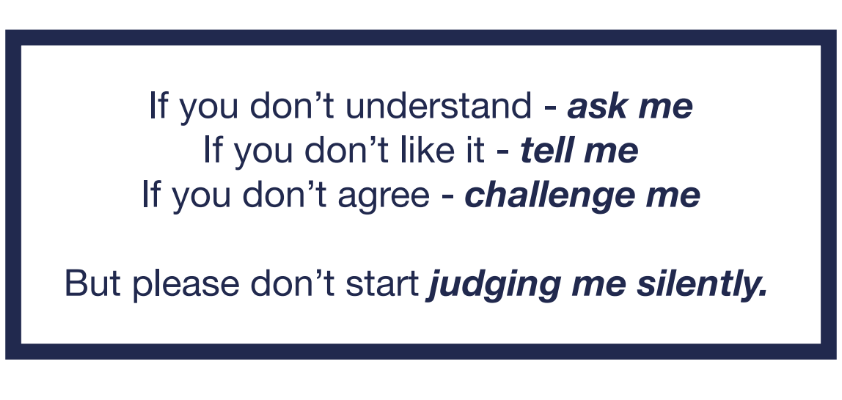 Many leaders are sharing with us that their current feeling of two steps forward and one step back is creating havoc both personally and professionally – some are no longer meeting face to face under any circumstance to maximise health protection, others are in Stage 4 lock down, others are encouraging their people to come into the office so they can “connect physically” and are struggling to get their people to actually do it, others are still very dependent on JobKeeper and others are drowning in fast and unanticipated business growth…..….everyone has a story!
Many leaders are sharing with us that their current feeling of two steps forward and one step back is creating havoc both personally and professionally – some are no longer meeting face to face under any circumstance to maximise health protection, others are in Stage 4 lock down, others are encouraging their people to come into the office so they can “connect physically” and are struggling to get their people to actually do it, others are still very dependent on JobKeeper and others are drowning in fast and unanticipated business growth…..….everyone has a story!
Managers and leaders are reporting feelings of overwhelm with little brain capacity to even think about “leadership” and what it means in times like these. The pressures are being felt emotionally, physically and mentally and it is draining and is taking higher levels of resilience for the bounce back.
The visual imagery many have referred to is the duck paddling furiously under the surface and yet on the surface working hard to look serene and emotionally resilient!
This is what we are hearing the average leader’s brain is filling up with:
- Concerns about family well-being
- Coping with the basics of homeschooling
- Fear about financial security
- Needing to understand staff concerns and worries while not being in the same room with them – so all my normal coping skills might not work in the remote environment
- Getting tasks done to ensure job security and revenue generation for the business
- Worried about the future of the business from a resources and revenue point of view
- Lack of insight about what the future holds as we dive into the economic downturn
- How am I going to find the energy, emotional resilience and intellectual capacity to keep bouncing back each day?
Bunker down or do something different?
Having experienced my own concerns over recent weeks…..where did July go I hear many say? I can absolutely acknowledge I resorted to bunkering down in the early weeks of July and could have remained there without the assistance of my 5-step process to re-frame my experiences and my thinking. It is only upon reflection that I can now see the intuitive process I resorted to and I want to share it with you. Those who know me well will appreciate that my personal brand has always been about turning up courageously, inspiring myself and others to look positively to the future and ultimately making a difference.
Instead I was that person who was feeling overwhelmed, worried about the future, bursting into tears, finding it challenging to receive feedback as it had started to feel so much more personal and spinning my wheels when trying to get things done.
So if you want to jump onboard with me that would be fabulous and I would value sharing stories and experiences with you. Let me know what you think about these 5 intuitive steps I can now see I used over the last couple of weeks:
- Acknowledge the need for time and space to come to terms with the changes – this is about a psychological process for me to make the transition
- Create the time and space it is going to take for you to actually process what is happening at a deeply personal level
- Challenge yourself to let go of fear, cynicism and judgement
- Don’t fear failure – it IS going to happen more often than it has before and it is OK to frame people to expect this, frame yourself to expect it and make it part of your new normal
- Shorten your vision period……..and be OK with the next 90 days or even better the next 30 days!
Transition takes time and space
When we experience a crisis, as we are now, we tend to hold tightly to the memory of the way we have always done things, believing this allows us to return to “normal” when the crisis subsides. In reality, that normal does not return, and a “new normal” needs to be embraced to allow us to move forward. Although we all recognise this intellectually and are reading about it everyday, I don’t think enough of us are really acknowledging it at a very personal level – I know I wasn’t until I received some feedback from a client that awoke me to the need that I would benefit from transitioning.
I use the simple example of Zoom meetings – and how many of us are complaining about them and how we cannot wait to go back to face to face or are even pushing for this right now – have we truly “transitioned” ? I will leave this with you to think about.
It is important that we acknowledge the benefit of cultivating a “transition” mindset, moving from where you have been to where you want to/need to be, in say 30 days. The wise words of William Bridges remind us that inner change happens before outer change occurs:
 I am no different to many of the leaders I have been speaking to – I was so busy doing stuff and making things work for others and caring for others that I did not acknowledge the need for me to transition. I did not clearly enough identify what I needed to let go of – maybe it was chasing those clients who had indicated they wanted to work with me before COVID who are now “ghosting” me as they are in their own state of overwhelm . My “old” ways of communicating with people and my “old” relationships may need some re-thinking and refreshing…even rebooting. Relationships with clients may now need to be built in a new and different way, appealing to what is happening now.
I am no different to many of the leaders I have been speaking to – I was so busy doing stuff and making things work for others and caring for others that I did not acknowledge the need for me to transition. I did not clearly enough identify what I needed to let go of – maybe it was chasing those clients who had indicated they wanted to work with me before COVID who are now “ghosting” me as they are in their own state of overwhelm . My “old” ways of communicating with people and my “old” relationships may need some re-thinking and refreshing…even rebooting. Relationships with clients may now need to be built in a new and different way, appealing to what is happening now.
Create time and space to “process”
Until you process what is happening for you at a deeply personal level it is difficult to completely and successfully transition and you will find yourself stuck or slipping back into the feeling of overwhelm. As I said in my earlier blog How to focus when we are in chaos and uncertainty? without a great strategy, hard work becomes a nightmare.
Each of us will do this differently, however the important thing is to make the time and space to actually engage in the process that is going to work for you.
Call me if you want ideas about what might work for you!
I share my insights with the intent of helping and guiding others. Firstly I took account of my MBTI preferences – having a preference for Extraversion means I like to talk things through. However when feeling overwhelmed I know that I will act out of “the dark side” or shadow of my personality – so I go deep inside myself and prefer Introversion (which I am not skilled at using in my daily life so it is undertaken in a somewhat clumsy and awkward way). I began to notice how much I had retreated from sharing and that I was deeply entrenched in my least preferred preference of introversion.
What happened next is insightful – my Extraversion means I am part of various groups of consultants and work with “teams” of colleagues across the globe and we have deep levels of trust. It was within one of these “safe conversations” that I suddenly found myself unexpectedly crying and it was the wonderful support and non judgemental questions from trusted colleagues that got me talking and the more I did this the more I processed what was really happening for me.
My appreciation for the need to talk was restored and I sought out others in my trusted network and I even went beyond my network to talk and share with others working in a similar industry to me. The more I talked about my feelings, the changes I was experiencing and the frustrations I was experiencing the more I could feel the fog lifting. I also experienced a stronger feeling of belonging – I was not in this alone, others were having similar experiences.
I encourage those reading this blog to find their process and then make the time and space it is going to require to dig deep and get highly personal.
Let go of fear, cynicism and judgement
We are so often our toughest critic and so I discovered the importance of really undertaking these 3 personal things:
- Let go of my fear of not operating at my previous and old normal standards – I did this by acknowledging things are going to be very different and people may not like what I do even if it was “what I have always done and people have loved it”……because we are all in very different spaces emotionally, personally and professionally
- Drop cynicism – so when things don’t go as you expect or plan, don’t resort to distrusting the motives of others, like the people giving you the feedback, the people resisting Zoom meetings and pushing for face to face, the people not wanting to come into the office – rather sit with it and do something with it
- Stop judging even if you feel judged try to step in and think the best of others and try asking questions to dig deeper and I find this quote below helps me even when I am feeling like others are judging me silently – it’s important to step in and ask the questions.

Don’t fear failure
When you stop being your toughest critic then you are able to shift into that space of allowing yourself to FAIL fast. One thing I have learned deeply is that it is one thing to talk about failing fast and it is quite another to actually live and breathe it, especially when you have high standards of performance, want to deliver exceptional service and feel threatened about financial security – wonderful recipe for perfectionism is it not?
It feels like stripping yourself bare and taking a good look at what you did, how you did it and what made it a failure – and it is going to feel very personal especially in these times we are all working and living in. It is also important not to think about what has worked historically because it is probably not relevant – we are shifting into a different way of working with different expectations of those we work with. So failure is going to be more prevalent and it is OK to frame people to expect this, frame yourself to expect it and make it part of your new normal.
Shorten your vision period
If we want to shift out of the current nightmare of hard work and overwhelm then as leaders we need to stop and take a step UP – slow down and walk away from the hard work for a few hours – do this and then you can speed up later without the same feelings of overwhelm. This all feels very counter intuitive and believe me it is vital right now!
Again I refer you to my earlier blog. All leaders will benefit from taking a step back (and up) to create focus for themselves and for others and stop creating the “nightmare of hard work”.
My personal experience shows that bringing a focus on the next 30 days is providing a realistic and achievable vision that I can bring energy to delivering on – and it has helped to lift the fog. It has meant more effective conversations with the team and we have a stronger and more tangible idea of how we can support each other to achieve progress.
How can I get started?
In the next week start small with the first 2 steps and then the following week tackle step 3 and then in your following week you are ready to immerse into step 4 and finally by the end of a month of action you are ready for step 5.
Here is a list of 5 things you can take action on over the next month:
- Write down what is filling your brain on your average day and the impact it has on you. Be real, sugar coating is not going to help you
- Acknowledge and accept internal transition is critical. Write down or talk with someone about what transition you have undertaken and maybe what you have been too scared to do
- Determine your process. Talk to someone, think about it…you will benefit from a process to get you out and through to the other side
- Get cosy with failure. What do you need to do to enable this kind of cosiness?
- Create your 30 day vision and share it with your team so you can work together and feel great about achievement again.Please connect with us, we would love to hear how you go and what really works for you – let’s share our learning and insights and grow stronger together.







